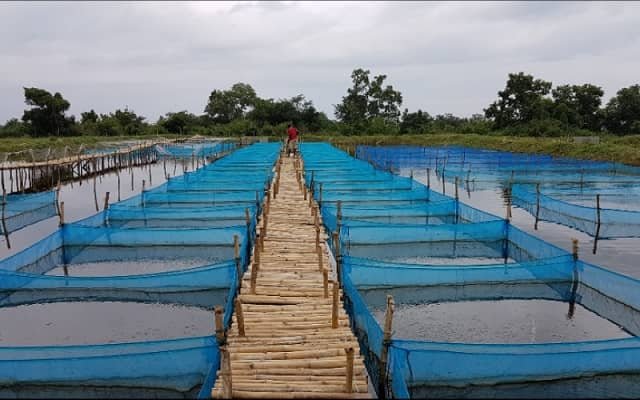A lack of adequately trained staff to undertake production programs is one of the main constraints for the development of aquaculture in Africa. Qualified employees are mainly enrolled in research or administrative work, and the majority of extension services and production activities are carried out by fisheries specialists who may not have the necessary practical skills in fish farming.
Other major challenges facing the sector are stunted fish seed, high mortality and poor aquatic health management,expensive fish feed(accounting for up to 60–70% of farming costs), a high level of postharvest losses and low value addition.
Despite these challenges, aquaculture in Africa has enormous potential. Interventions carried out under the Technologies for African Agricultural Transformation (TAAT) program are projected to increase fish production over the next five years that will benefit 1.15 million aquaculture value chain actors through improved food security and income.
More information at: http://blog.worldfishcenter.org/2019/01/aquaculture-in-africa-benefiting-from-new-technologies-best-management-practices/
Editor at the digital magazine AquaHoy. He holds a degree in Aquaculture Biology from the National University of Santa (UNS) and a Master’s degree in Science and Innovation Management from the Polytechnic University of Valencia, with postgraduate diplomas in Business Innovation and Innovation Management. He possesses extensive experience in the aquaculture and fisheries sector, having led the Fisheries Innovation Unit of the National Program for Innovation in Fisheries and Aquaculture (PNIPA). He has served as a senior consultant in technology watch, an innovation project formulator and advisor, and a lecturer at UNS. He is a member of the Peruvian College of Biologists and was recognized by the World Aquaculture Society (WAS) in 2016 for his contribution to aquaculture.







